The service’s founder shares reasons for its decade of success and typical examples of why people, mainly women, might rent an ossan.
rent
The apartment, which comes complete with Ikea furniture, is being leased by a giant shark.
Features like built-in kitty litter boxes under the floor let furbabies truly rule the house you live in.
Forgot to charge your phone or tablet before leaving home? This useful service has you covered.
While they might look appealing to visitors, according to residents, these suburbs can be hell to live in.
What better way to convince your spouse to stop cheating than by hiring a “friend” to tell them to quit?
You can rent pretty much anything in Japan. Even people, it would seem.
With so many people working long hours and not having the time to devote to cultivating real relationships, it’s just easier to hand over some cash and pay someone to act as your boyfriend, girlfriend, or just a friend to hang out with for the day.
But what about when you’re looking for something different? What if you’re in need of life advice that only a middle-aged Japanese man can provide? Well that’s where the ossan (middle-aged/old) rental service comes in!
In Japan, places where people have died are considered bad luck, so unsurprisingly apartments where there has been a suicide, murder, or other death are rented at much cheaper prices than usual due to a lack of demand. However, real estate agencies are seeing a surge in people specifically seeking these kinds of ‘death rooms’. That may sound horribly morbid, but usually it’s not out of a desire to be close to death. Rather, for those who can put aside their culturally-ingrained reservations, it’s a way to save money during tough times.
When it comes to finding a new place to live, most people spend weeks, even months trying to find somewhere that’s just right for them. In urban Japan, where rented accommodation is usually both more compact and in higher demand than in the West, finding an apartment can be even trickier, and prospective renters often have to make snap decisions or risk missing a good deal; opting for a ground-floor apartment and paying a little less; choosing a place with an all-in-one bath, sink and toilet unit rather than separate facilities; getting a place a little further from the station if it means living in a nicer area–you see “close enough” and you grab it.
But would you really feel comfortable living in an apartment knowing that it was once used exclusively for sexy shenanigans every single night of the week? Welcome to the world of love hotel renovation!
Quite common in Western countries, the concept of shared accommodation in Japan is still relatively new. However, according to Oak House, a guest house and apartment operator in Tokyo, such accommodation is gaining in popularity. Fifteen years ago, the company managed about 150 units; today that figure has risen to 2,300. Shunned by some as being inconvenient and a hassle, others are being drawn to added-value properties featuring amenities such as yoga studios and home theater facilities. Oak House said there is a waiting list of 100 people at its most popular location.
Shared accommodation also has the benefit of being cost effective as no key money (a mandatory, nonrefundable payment, typically equivalent to two months’ rent, given to the landlord for the privilege of being able to live in the unit) or security deposit (typically two months’ rent, and though technically refundable, is seldom returned in full as apartment cleaning fees and other expenses are deducted) are required. Additionally, furnishings are provided, something else that is not common in Japan, meaning initial outlays can be kept to a minimum.
With the popularity of this type of housing increasing, companies in Japan are concocting various inducements in an effort to draw in renters.



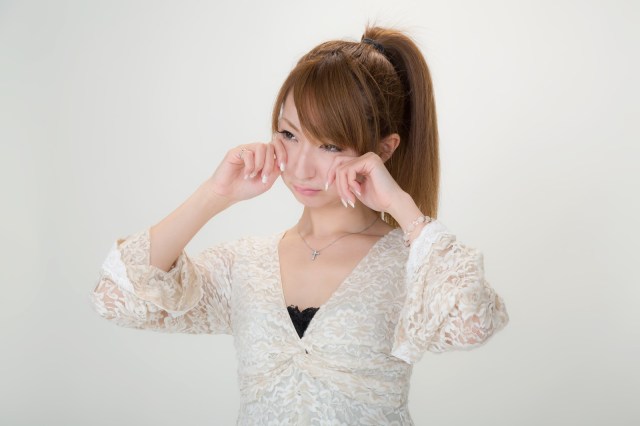


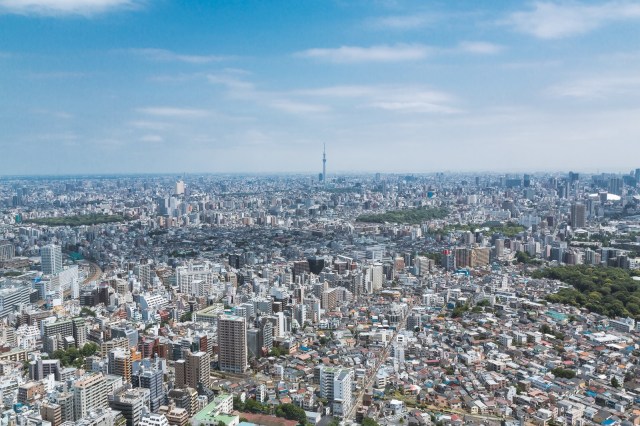
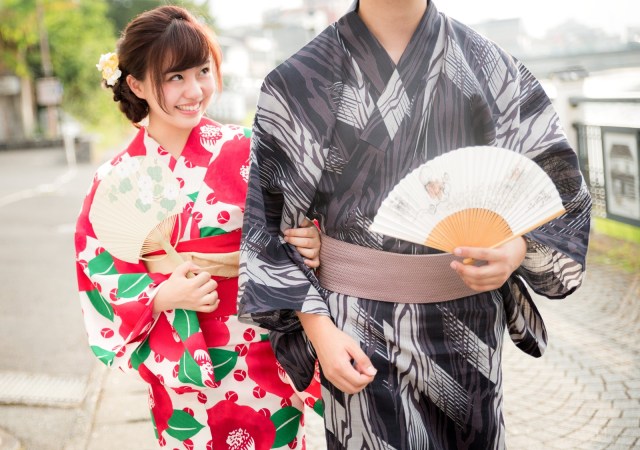
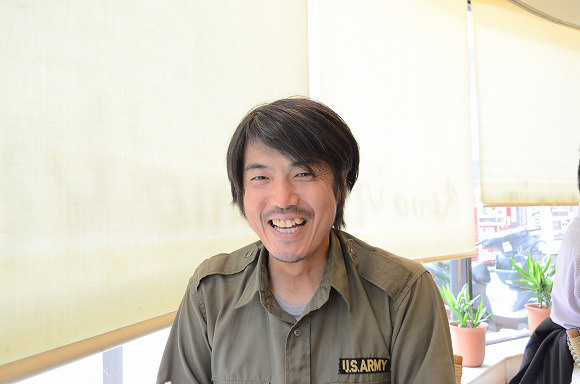
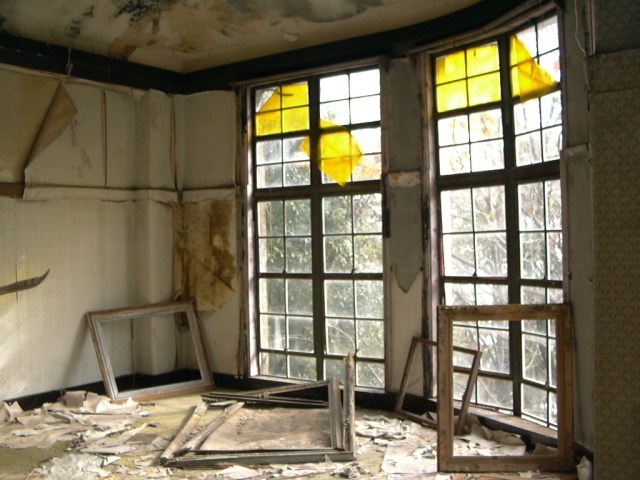
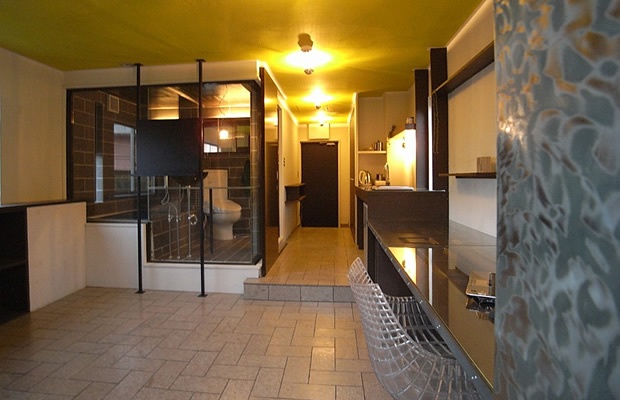
 Starbucks Japan unveils new sakura cherry blossom collection for hanami season 2026
Starbucks Japan unveils new sakura cherry blossom collection for hanami season 2026 Is Tokyo Station’s startlingly expensive wagyu bento boxed lunch worth its high price?[Taste test]
Is Tokyo Station’s startlingly expensive wagyu bento boxed lunch worth its high price?[Taste test] One Piece creator has hidden secret of anime treasure’s identity in chest at bottom of real-world ocean
One Piece creator has hidden secret of anime treasure’s identity in chest at bottom of real-world ocean Japan’s cherry blossom season predicted to start earlier than we’d thought, especially in Tokyo
Japan’s cherry blossom season predicted to start earlier than we’d thought, especially in Tokyo Taste-testing Japan’s real-world Dragon Balls and Senzu Beans at Marugame Seimen
Taste-testing Japan’s real-world Dragon Balls and Senzu Beans at Marugame Seimen Live-action One Piece’s Luffy teaches Sesame Street’s Elmo a Japanese word for friendship[Video]
Live-action One Piece’s Luffy teaches Sesame Street’s Elmo a Japanese word for friendship[Video] Studio Ghibli releases giant Totoro plushies in Japan
Studio Ghibli releases giant Totoro plushies in Japan Expensive Japanese nail clippers: Are they worth it?
Expensive Japanese nail clippers: Are they worth it? Tokyo street sweets: The must-snack treats of Nakano’s Refutei
Tokyo street sweets: The must-snack treats of Nakano’s Refutei Poop is in full bloom at the Unko Museums for cherry blossom season
Poop is in full bloom at the Unko Museums for cherry blossom season Starbucks Japan releases first-ever Hinamatsuri Girls’ Day Frappuccino
Starbucks Japan releases first-ever Hinamatsuri Girls’ Day Frappuccino Japanese restaurant chain serves Dragon Ball donuts and Senzu Beans this spring
Japanese restaurant chain serves Dragon Ball donuts and Senzu Beans this spring Japan Extreme Budget Travel! A trip from Tokyo to Izumo for just 30,000 yen [Part 1]
Japan Extreme Budget Travel! A trip from Tokyo to Izumo for just 30,000 yen [Part 1] Japan’s craziest burger chain takes menchi katsu to new extreme levels
Japan’s craziest burger chain takes menchi katsu to new extreme levels Japan Extreme Budget Travel! A trip from Tokyo to Izumo for just 30,000 yen [Part 2]
Japan Extreme Budget Travel! A trip from Tokyo to Izumo for just 30,000 yen [Part 2] Japanese drugstore sells onigiri at pre-stupid era prices, but how do they compare to 7-Eleven?
Japanese drugstore sells onigiri at pre-stupid era prices, but how do they compare to 7-Eleven? Viral Japanese cheesecake from Osaka has a lesser known rival called Aunt Wanda
Viral Japanese cheesecake from Osaka has a lesser known rival called Aunt Wanda Lawson adds doughnuts to its convenience store sweets range, but are they good enough to go viral?
Lawson adds doughnuts to its convenience store sweets range, but are they good enough to go viral? Japan’s newest Shinkansen has no seats…or passengers [Video]
Japan’s newest Shinkansen has no seats…or passengers [Video] Starbucks Japan releases new sakura goods and drinkware for cherry blossom season 2026
Starbucks Japan releases new sakura goods and drinkware for cherry blossom season 2026 Foreigners accounting for over 80 percent of off-course skiers needing rescue in Japan’s Hokkaido
Foreigners accounting for over 80 percent of off-course skiers needing rescue in Japan’s Hokkaido Super-salty pizza sends six kids to the hospital in Japan, linguistics blamed
Super-salty pizza sends six kids to the hospital in Japan, linguistics blamed Starbucks Japan unveils new sakura Frappuccino for cherry blossom season 2026
Starbucks Japan unveils new sakura Frappuccino for cherry blossom season 2026 Foreign tourists in Japan will get free Shinkansen tickets to promote regional tourism
Foreign tourists in Japan will get free Shinkansen tickets to promote regional tourism The 10 most annoying things foreign tourists do on Japanese trains, according to locals
The 10 most annoying things foreign tourists do on Japanese trains, according to locals Take a trip to Japan’s Dododo Land, the most irritating place on Earth
Take a trip to Japan’s Dododo Land, the most irritating place on Earth Naruto and Converse team up for new line of shinobi sneakers[Photos]
Naruto and Converse team up for new line of shinobi sneakers[Photos] Survey asks foreign tourists what bothered them in Japan, more than half gave same answer
Survey asks foreign tourists what bothered them in Japan, more than half gave same answer Japan’s human washing machines will go on sale to general public, demos to be held in Tokyo
Japan’s human washing machines will go on sale to general public, demos to be held in Tokyo Starbucks Japan releases new drinkware and goods for Valentine’s Day
Starbucks Japan releases new drinkware and goods for Valentine’s Day We deeply regret going into this tunnel on our walk in the mountains of Japan
We deeply regret going into this tunnel on our walk in the mountains of Japan Studio Ghibli releases Kodama forest spirits from Princess Mononoke to light up your home
Studio Ghibli releases Kodama forest spirits from Princess Mononoke to light up your home Major Japanese hotel chain says reservations via overseas booking sites may not be valid
Major Japanese hotel chain says reservations via overseas booking sites may not be valid Put sesame oil in your coffee? Japanese maker says it’s the best way to start your day【Taste test】
Put sesame oil in your coffee? Japanese maker says it’s the best way to start your day【Taste test】 No more using real katana for tourism activities, Japan’s National Police Agency says
No more using real katana for tourism activities, Japan’s National Police Agency says Live-action One Piece’s Luffy teaches Sesame Street’s Elmo a Japanese word for friendship[Video]
Live-action One Piece’s Luffy teaches Sesame Street’s Elmo a Japanese word for friendship[Video] Studio Ghibli releases giant Totoro plushies in Japan
Studio Ghibli releases giant Totoro plushies in Japan Expensive Japanese nail clippers: Are they worth it?
Expensive Japanese nail clippers: Are they worth it? Tokyo street sweets: The must-snack treats of Nakano’s Refutei
Tokyo street sweets: The must-snack treats of Nakano’s Refutei Poop is in full bloom at the Unko Museums for cherry blossom season
Poop is in full bloom at the Unko Museums for cherry blossom season Number of foreign students in Japan hits record high, one country accounts for over 35 percent
Number of foreign students in Japan hits record high, one country accounts for over 35 percent Shizuoka hot springs town invites you to see one of the longest hina doll displays in Japan
Shizuoka hot springs town invites you to see one of the longest hina doll displays in Japan Eight video games get awesome Disney-esque makeovers
Eight video games get awesome Disney-esque makeovers Children’s slippers stolen in night at Japanese preschool, police identify weasel who did it【Vid】
Children’s slippers stolen in night at Japanese preschool, police identify weasel who did it【Vid】 Burgers soaked in a plate of hot cheese served at American Diner Andra in Tokyo
Burgers soaked in a plate of hot cheese served at American Diner Andra in Tokyo Cute coffins now available at Tokyo’s coffin relaxation salon[Photos]
Cute coffins now available at Tokyo’s coffin relaxation salon[Photos] We tried six Japanese burger chains’ coffee to test the state of fast food coffee in Japan[Taste test]
We tried six Japanese burger chains’ coffee to test the state of fast food coffee in Japan[Taste test] Upcoming Japanese video game has its idol singers dying, literally, to be the number one vocalist
Upcoming Japanese video game has its idol singers dying, literally, to be the number one vocalist